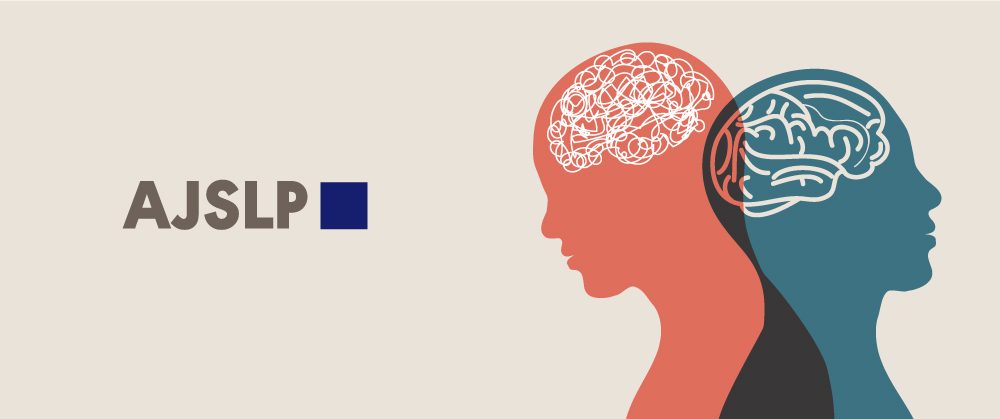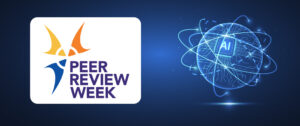March is Brain Injury Awareness Month, and the latest special issue from the American Journal of Speech-Language Pathology (AJSLP) couldn’t have come out at a more appropriate time. Millions of Americans sustain a brain injury every year, and ASHA members can be an important resource for these individuals.
Last year, hundreds of researchers, clinicians, and students gathered to share the latest research on cognitive-communication and social disorders after traumatic brain injury (TBI). Now, Special Issue Editor Margaret Lehman Blake is bringing expertise from the 3rd International Cognitive-Communication Disorders Conference (ICCDC) to readers of AJSLP. Check out summaries of these 10 papers below!
The Latest Research
Two articles in the special issue focus on the clinical experience of people with TBI and those who work with them. First, Christensen and colleagues surveyed rehabilitation staff on the unique challenges of communicating with people with TBI. Next, Hoepner and Keegan investigated the experiences people with TBI have had with health care professionals across the recovery continuum, identifying areas where health care professionals can improve the experiences for the patient experience.
Recovery after mild TBI (mTBI; also known as a concussion) isn’t always a clear path. Kemp et al. studied college students who had experienced concussions, finding that typical measures of recovery may not capture people’s individualized experiences and that recovery is often an ongoing process. Similarly, Norman and colleagues looked at people with a history of mTBI, finding that their cognitive-communication problems after injury have impacted their vocational, social, and academic success.
The special issue also contains articles about ways to reach underserved populations who may need rehabilitative services—specifically, uninsured people and people in prison. Haarbauer-Krupa et al. detail a volunteer-run rehabilitation program providing free services for uninsured people with acquired brain injury. Then, Wiseman-Hawkes and colleagues explore the communication challenges of people with a history of TBI in the criminal justice system and advocate for speech-language pathology services for these individuals.
New Technology and New Ideas
Two articles discuss how clinicians can incorporate technology into their practice. First, Brassel et al. talked to speech-language pathologists (SLPs) who work with people with TBI to discuss how virtual reality could be used in rehabilitation. Then, Brunner and colleagues looked at the impact of a program designed to help people with an acquired brain injury use social media.
Later, the forum ends with two articles that ask experts to reconsider aspects of their work. Morrow and Duff suggest that studying word learning in patients with TBI can give researchers a better understanding of neurogenic cognitive-communication disorders as a whole. Finally, Keegan et al. discuss the application of sociolinguistic methods and a person-centered approach from research to the clinic.
Helping Clinicians Treat Patients With TBI
In her introduction to the issue, Blake says that authors address “clinical challenges, but also some solutions for improving communication and quality of life for people with acquired brain injury,” (Blake, 2023, p. 815). We hope that this special issue can help you better serve patients with traumatic and other acquired brain injuries.
We’d like to thank Dr. Blake and all of the authors and reviewers for their important work putting together this special issue. You can learn more about the forum by watching the video with Dr. Blake below. Once you’re done with that, be sure to read the entire special issue online or explore the individual articles below.
Related Videos
Explore the Forum
Blake, M. L. (2023). Introduction to the special issue: Select papers from the third international cognitive-communication disorders conference. American Journal of Speech-Language Pathology, 32(1S), 815–816. https://doi.org/10.1044/2023_AJSLP-23-00050
Brassel, S., Brunner, M., Power, E., Campbell, A., & Togher, L. (2023). Speech-language pathologists’ views of using virtual reality for managing cognitive-communication disorders following traumatic brain injury. American Journal of Speech-Language Pathology, 32(1S), 907–923. https://doi.org/10.1044/2022_AJSLP-22-00077
Brunner, M., Rietdijk, R., Avramovic, P., Power, E., Miao, M., Rushworth, N., MacLean, L., Brookes, A.-M., & Togher, L. (2023). Developing social-ABI-lity: An online course to support safe use of social media for connection after acquired brain injury. American Journal of Speech-Language Pathology, 32(1S), 924–940. https://doi.org/10.1044/2022_AJSLP-22-00099
Christensen, I., Power, E., Togher, L., & Norup, A. (2023). “Communication is not exactly my field, but it is still my area of work”: Staff and managers’ experiences of communication with people with traumatic brain injury. American Journal of Speech-Language Pathology, 32(1S), 827–847. https://doi.org/10.1044/2022_AJSLP-22-00074
Haarbauer-Krupa, J., Eugene, D., Wallace, T., & Johnson, S. (2023). Neurorehabilitation for the uninsured: Georgia rehabilitation services volunteer partnership clinic. American Journal of Speech-Language Pathology, 32(1S), 817–826. https://doi.org/10.1044/2022_AJSLP-22-00100
Hoepner, J. K., & Keegan, L. C. (2023). “I avoid interactions with medical professionals as much as possible now”: Health care experiences of individuals with traumatic brain injuries. American Journal of Speech-Language Pathology, 32(1S), 848–866. https://doi.org/10.1044/2022_AJSLP-22-00103
Keegan, L. C., Hoepner, J. K., Togher, L., & Kennedy, M. (2023). Clinically applicable sociolinguistic assessment for cognitive-communication disorders. American Journal of Speech-Language Pathology, 32(1S), 966–976. https://doi.org/10.1044/2022_AJSLP-22-00102
Kemp, A. M., O’Brien, K. H., & Wallace, T. (2023). Reconceptualizing recovery after concussion: A phenomenological exploration of college student experiences. American Journal of Speech-Language Pathology, 32(1S), 867–882. https://doi.org/10.1044/2022_AJSLP-22-00076
Morrow, E. L., & Duff, M. C. (2023). Word learning as a window to memory and rehabilitation outcomes in traumatic brain injury. American Journal of Speech-Language Pathology, 32(1S), 956–965. https://doi.org/10.1044/2022_AJSLP-22-00073
Norman, R., Flaugher, T., Chang, S., & Power, E. (2023). Self-perception of cognitive-communication functions after mild traumatic brain injury. American Journal of Speech-Language Pathology, 32(1S), 883–906. https://doi.org/10.1044/2022_AJSLP-22-00101
Wiseman-Hakes, C., Magor, T., Bauman, N., Colantonio, A., & Matheson, F. I. (2023). Exploring the cognitive-communication challenges of adults with histories of traumatic brain injury and criminal justice system involvement: A pilot study. American Journal of Speech-Language Pathology, 32(1S), 941–955. https://doi.org/10.1044/2022_AJSLP-22-00086







